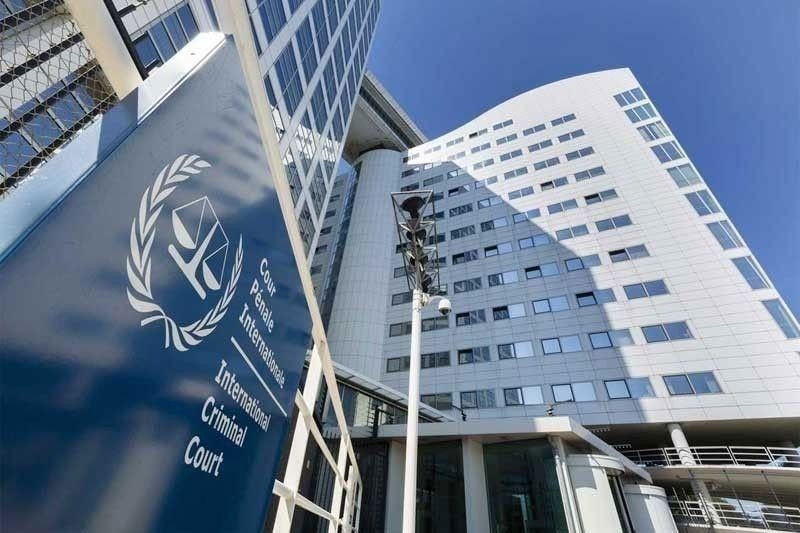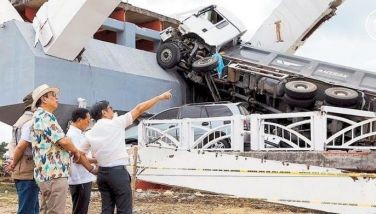Philippines to challenge ICC jurisdiction if...

MANILA, Philippines — The Philippines can raise the issue of jurisdiction should the International Criminal Court (ICC) issue warrants of arrest in connection with former president Rodrigo Duterte’s war on drugs, according to the Office of the Solicitor General (OSG).
“This unresolved issue of jurisdiction will be a powerful argument for any person who may be investigated or charged by the ICC,” Solicitor General Menardo Guevarra told reporters in a text message yesterday.
The ICC Appeals Chamber, voting 3-2, rejected the Philippine government’s appeal against the resumption of investigation into crimes against humanity committed under the previous Duterte administration.
Guevarra said the Appeals Chamber failed to rule on the issue of the ICC’s jurisdiction.
The dissenting judges, including the presiding judge, took a “strong position” that the international tribunal “had already lost jurisdiction over the Philippines when the prosecutor sought to commence his investigation.”
The OSG earlier said it was “disappointed” over the ICC’s decision, and that the Appeals Chamber “conveniently brushed aside” the internal investigation and prosecution activities undertaken by the government concerning the anti-illegal drug campaign.
According to Sara Bafadhel, the British lawyer tapped by the Philippine government, there are available legal remedies for the Philippines should the ICC move to arrest individuals.
“The main opportunity would be in the event that the prosecution did issue an arrest warrant, name a specific suspect and put forward a concrete case, that the government, under Article 19 of the Rome Statute, has the right to intervene and ask for a decision on jurisdiction at that point, arguing and asserting that the court does not have jurisdiction,” Bafadhel said in a press conference.
The Duterte administration officially withdrew from the Rome Statute, a treaty that established the ICC, in March 2018. The ICC explained it still has jurisdiction over crimes committed before the Philippines’ withdrawal.
Bafadhel declined to confirm a report that Vice President Sara Duterte and Senators Ronald dela Rosa and Bong Go were among those named in documents submitted to the ICC.
Fact-checking group Vera Files reported that Sara Duterte “was mentioned as knowing and approving the killings” when she was Davao City mayor.
“We cannot confirm the names of anyone named in the documents submitted. This is a confidential process so far, so there’s no official record of who’s been named. It’s in the initial stages, so there are no named suspects as of yet that are publicly known,” Bafadhel said.
PNP will not cooperate
Meanwhile, the Philippine National Police (PNP) will not cooperate with the ICC’s probe of the Duterte administration’s war on drugs. ?“As part of the executive department, we will follow and support the lead of the national government not to participate in the said investigation to be conducted by the ICC,” PNP spokesperson Col. Jean Fajardo said at a news briefing at Camp Crame yesterday. ?Fajardo reiterated that the country has a functioning justice system, and the PNP is not hiding from the Department of Justice’s investigation of reported abuses by anti-narcotics officers.
Anti-drug campaign documents of the previous administration are intact with the PNP Directorate for Investigation and Detective Management, she added.
“If there is a need to produce these case folders, then the PNP is ready to provide if being directed to submit,” Fajardo said.
Senate won’t give Bato to ICC
Senate President Juan Miguel Zubiri said on July 19 that they will not surrender Dela Rosa, whose nickname is Bato, to the ICC as only local courts are allowed to issue warrants of arrest.
“Without the local warrant of arrest issued by the courts, then as far as I’m concerned, he is still a working member of the Senate and accorded of course that respect,” he added.
Dela Rosa, former police chief of the Duterte administration, was the chief implementor of the war on drugs.
“The process is the ICC should be filing (a case) with the local courts, and the local courts will be the ones to issue warrants of arrest. That should be the process. I’m just stating a fact, a legal fact,” Zubiri pointed out.
“If Senator Bato dela Rosa leaves the country and goes to the country that is friendly to the ICC, then they will act in that country to arrest Senator dela Rosa, but here in the Philippines, the process is they must coordinate with the local court,” he explained. “If the local court issues a warrant of arrest, we cannot do anything about it.”
Sen. Risa Hontiveros said the ICC’s decision is an “important first step” to achieve justice “for the victims, the widows and the orphans of the war on drugs.”
‘Interference’
Sen. Francis Tolentino said at a press briefing yesterday that the dissenting opinion of ICC Judges Marc Perrin de Brichambaut and Gocha Lordkipanidze showed that the ICC has no jurisdiction.
The ICC Appeals Chamber clarified that its decision does not constitute a “decision with respect to jurisdiction” since the issue was not properly raised before the Pre-Trial Chamber.
“I don’t think we need international interference. We have courts of law. We have a strong justice system. We don’t need any interference,” Sen. Mark Villar said during the Kapihan sa Manila Bay media forum.
Sen. Sherwin Gatchalian said the Philippines would admit it is a “failed state” if it allows the ICC’s investigation.
“We can all agree that we have a working justice system, that we don’t have a failed state like in other countries with a civil war. I don’t see why we should surrender to another nationality when we have our own court system,” Gatchalian said in an interview with Radyo 630. — Cecille Suerte Felipe, Neil Jayson Servallos, Marc Jayson Cayabyab
- Latest
- Trending




























